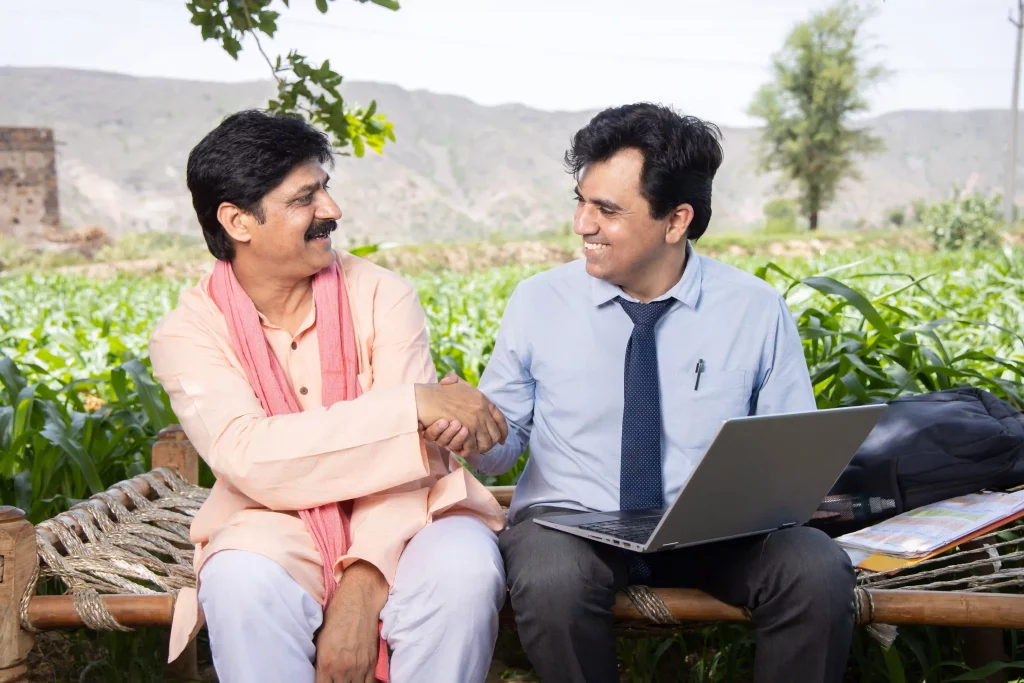NBFC Growth Accelerator Program
- Home
- NBFC Growth Accelerator Program
First Cohort NDFC Accelerator Program (Oct 16-18 2023, Mumbai)

The assessed credit demand of MSMEs who employ approximately 40% of India’s nonfarm workforce is about $240 billion. The World Bank estimates the MSME credit gap to be at approximately $380 billion ( 2021 International Financial Corporation (IFC) report).
Banks and NBFCs are focussed on bridging this gap with NBFCs better poised to lend innovatively aided by technology, analytics and their ability to understand niches. NBFCs have about 16% share in the credit ecosystem with AUMs of ~Rs 27 lakh crore in Mar 2022 (Crisil Assocham report).
So, what is required to bridge the credit gap for MSMEs?
One solution is to have a larger base of NBFCs who offer credit at reasonable rates to MSMEs . This links back to NBFC funding and how it can be scaled. NBFCs are primarily funded by banks and that has grown sharply over FY23, to Rs 13.09 lakh crore in February 2023, from Rs 9.8 lakh crore in February 2022, according to RBI data.
Currently, there is no structured program to evaluate NBFCs, provide them with guidance and enable capability building. The requirements for NBFCs who have tied up with Fintech’s are different from traditional NBFCs who operate with a steady customer base. Technology enablement is helping NBFCs + Fintech’s demonstrate quick growth in revenue and customer acquisition but they still struggle with profitability. Traditional NBFCs who have long standing customers need support in governance and technology.
For NBFCs to scale, right staffing which is a mix of financial services and technology professionals, strong operating models to drive unit economics, partnerships with Fintechs, corporate governance and data models which allow for compliance to regulatory requirements and ease of customer interactions are mandatory. With evolving regulatory norms, agility to change the operating models which ensure compliance and customer experience are key requirements for NBFCs.
All these require guidance and inputs by ecosystem partners including experts in the financial services, risk and credit rating agencies, technology specialists, large NBFCs who have mastered co-lending and funding agencies. Currently, this is a white space with no structured forum for players to come together to support and enable the sector to grow.
A model like the accelerator programs which exist across the globe to help startup’s grow and get funding is much needed both for the NBFCs and the funding institutions. It will help build a pipeline of future ready NBFCs who funding institutions can work with to create a funnel of credit to deserving sectors. This will require market makers like SIDBI and leading banks to come forward and participate in the program so it is symbiotic.
THE GAME PLAN

GAME and SIDBI are in the process of jointly designing and structuring a sustainable and scalable NBFC Growth Accelerator Program (NGAP), which will be the first of its kind in India.
In the first phase, the program involves design of a comprehensive, actionable, granular report with the programme structure, piloting strategy, and implementation plan for NGAP by GAME. The report will also include criteria for evaluation and selection of around 20 NBFCs that are small in size but focussed on the MSE segment to be part of the pilot cohort.
The goal of NGAP is to have a structured model on the lines of global accelerators which will help small NBFCs that cater to MSEs in Tier 3 and 4 cities or to the urban MSEs that serve as the lowest rung of suppliers in a longer value chain, in order to build their capability and make them eligible for institutional funding from bank or larger NBFCs.
The program will include – Assessment framework to arrive at a baseline and appropriate capability building interventions for the NBFCs to scale. The interventions will leverage experts and mentors from the larger ecosystem and will include multiple dimensions. It includes funding from SIDBI to such NBFCs that emerge strongly from the capacity building program thereby indicating readiness of cohort participants to apply for funding from Banks/FIs will be assessed by a third-party audit at the end of the program.
NGAP is expected to be rolled out with active engagement of SIDBI from August 2023.
Videos
NBFC

2:01

3:58

1:20
Junior Achievement India Services (JAIS) is registered under section 25 of The Companies Act, 1956. Global Alliance for Mass Entrepreneurship (“GAME”) is the brand of Junior Achievement India Services (JAIS) and all intellectual properties in this regard are owned by JAIS. The names GAME and JAIS are interchangeably used in all communication with funders, partners and other stakeholders.
Quick Links
© Copyright 2024 by JUNIOR ACHIEVEMENT INDIA SERVICES
